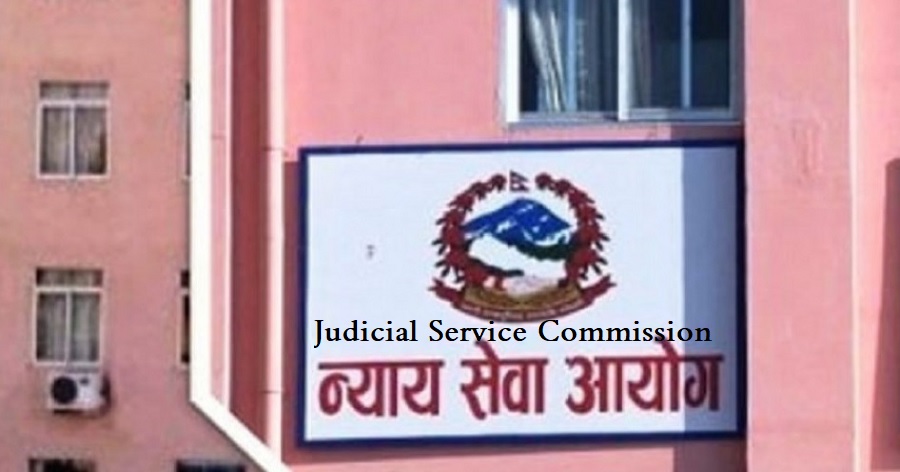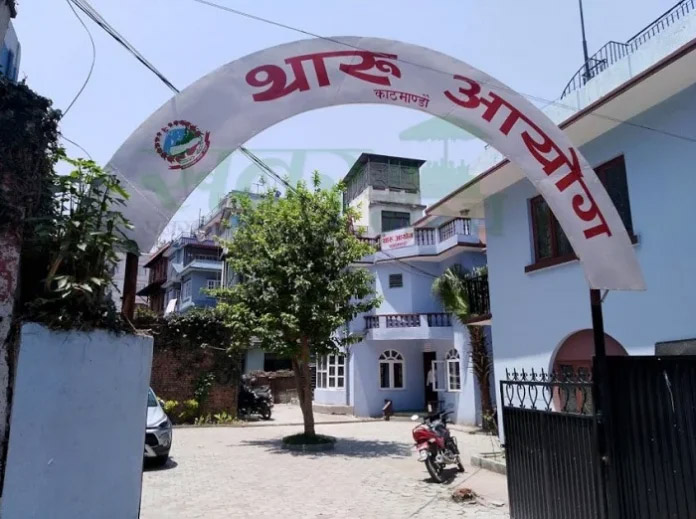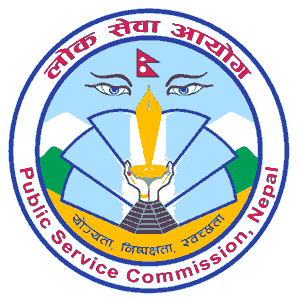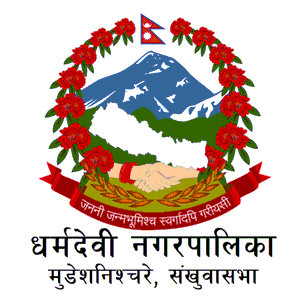Overview
Judicial Service Commission (Nyaya Sewa Aayog): The journey of the Nepalese judiciary system has been a transformative one, beginning as a subsidiary of the executive branch until a significant change in 1940. The establishment of Pradhan Nyalaya marked the commencement of an independent judicial system in Nepal, under the leadership of Prime Minister Juddha Shamsher JBR. This period was crucial for laying the groundwork for an autonomous judicial entity.

Key Milestones and Legislative Acts
-
Pradhan Nyayalaya Act, 1951: This act, sealed with the royal approval on 8th May 1952 and published later that year, was a foundational law for Nepal's judiciary. Hari Prasad Pradhan’s tenure as the Chief Justice, starting in 1951, was guided by the principles set forth in the 1997 Sanad.
-
Introduction of Writs: A pivotal advancement came with the Pradhan Nyayalaya Act-2008, Section 18, which for the first time, empowered the Pradhan Nyayalaya with the authority to issue writs, enhancing its judicial capabilities.
-
Establishment of the Supreme Court: The Supreme Court of Nepal was established in 1956, following the Supreme Court Act, 2013, signifying a crucial step in the development of Nepal’s judicial framework.
-
Formation of Judicial Service: The Judicial Service (Formation) Regulation, 2013, was a significant move towards specializing judicial services, marking the beginning of a structured judicial service system.
-
Judicial Administration Act, 2016: This act introduced a comprehensive structure under the Supreme Court, including High Court, District Court, and State Court, providing a clear hierarchy within the judicial system.
-
Amendments and Reforms: Subsequent amendments and reforms, such as the Judicial Administration Reform Act, 2031, and the establishment of regional courts, reflected ongoing efforts to adapt and improve the judicial system in response to the country's evolving needs.
Constitutional Provisions and the Judicial Service Commission
The Constitution of the Kingdom of Nepal, 2047, was a landmark document that established the Judicial Council, ensuring the judiciary's independence and objectivity. It transformed judges' roles into constitutional positions, thereby solidifying the judiciary's framework.
The Judicial Service Commission, as defined in the Constitution of Nepal (2072), plays a crucial role in maintaining the judiciary's integrity, overseeing appointments, transfers, and disciplinary actions against judges. This commission is a testament to Nepal’s commitment to a transparent, fair, and independent judicial system.
Implications for Governance and Justice
The evolution of the Nepalese judiciary and the establishment of the Judicial Service Commission are indicative of Nepal’s dedication to upholding the principles of justice, transparency, and independence in its legal system. These developments not only enhance the governance structure but also reinforce the citizens' trust in the legal framework, ensuring that justice is accessible and equitable for all.
Key Structure and Membership
The Judicial Service Commission (JSC) in Nepal plays a pivotal role in ensuring the integrity and efficiency of the judicial system. Established under the provisions of the Constitution of Nepal (2072), the JSC is responsible for the appointment, transfer, and disciplinary measures concerning judges, among other crucial functions. Its composition is designed to reflect a broad spectrum of legal and judicial expertise, ensuring a balanced and informed approach to its responsibilities. The members of the Judicial Service Commission include:
- Chairperson: The Chief Justice of Nepal serves as the Chairperson, providing leadership and direction to the JSC.
- Members:
- The Federal Minister for Law and Justice, who brings the executive branch's perspective into judicial appointments and governance.
- The senior-most Judge of the Supreme Court, offering deep insights into the judiciary's workings and needs.
- The Chairperson of the Public Service Commission, ensuring that the commission's decisions align with broader civil service standards and practices.
- The Attorney General of Nepal, who adds a prosecutorial and legal dimension to the commission's deliberations.
Additionally, the Judicial Service Commission Act, 2075, further stipulates that the secretary of the Judicial Council shall also serve as the secretary of the Judicial Service Commission. This provision ensures continuity and cohesion between the Judicial Council's advisory functions and the JSC's administrative and disciplinary roles.
Functions and Impact
The JSC's composition is a testament to Nepal's commitment to a fair, independent, and robust judicial system. By involving high-ranking officials from different branches of the government and the judiciary, the JSC embodies a comprehensive approach to judicial administration. This diverse representation facilitates a balanced assessment of candidates for judicial positions and helps maintain the judiciary's integrity and professionalism.
The inclusion of the Judicial Council's secretary as the JSC's secretary is a strategic decision that bridges the gap between judicial policy-making and the operational aspects of managing the judiciary's human resources. This arrangement enhances the efficiency of judicial administration and ensures that the principles of justice, independence, and transparency are upheld in the management and oversight of the judiciary.
Roles and Responsibilities of the Judicial Service Commission in Nepal
The Judicial Service Commission (JSC) of Nepal is a cornerstone institution in ensuring the integrity, efficiency, and professionalism of the judiciary. Tasked with a broad spectrum of responsibilities, the JSC operates under the constitutional and legislative framework to uphold the principles of justice and accountability. Here's an overview of its key functions, duties, and powers:
Appointment, Transfer, and Promotion
- The JSC is central to the appointment, transfer, and promotion of gazetted officers within the Federal Judicial Service. The Government of Nepal acts upon the JSC's recommendations for such decisions, ensuring that these processes are conducted fairly and meritocratically.
- In cases involving new appointments to gazetted posts from outside the Federal Government Service, or promotions from non-gazetted to gazetted positions within the Federal Judicial Service, the JSC collaborates with the Public Service Commission to recommend suitable candidates.
Preparation of Working Schedules
- The commission is responsible for preparing working schedules concerning the appointment and promotion of Federal Judicial Service Gazetted officers, ensuring a structured and transparent approach to managing judicial personnel.
Selection and Examination Processes
- For the selection of candidates for open and internal competitive posts of Gazetted First Class and Gazetted Second Class Federal Officers, the JSC writes to the Public Service Commission, leveraging its expertise to identify the most qualified individuals.
- The JSC also oversees the examination processes and recommends candidates for the appointment of Judges at the District Court level, further emphasizing its role in maintaining high standards within the judiciary.
Consultation and Departmental Actions
- Providing consultations on departmental actions against Gazetted Officers is another critical function of the JSC. This includes disciplinary measures, ensuring that any actions taken are justified and aligned with legal standards.
Promotional and Research Activities
- To make judicial service more effective and appealing, the JSC engages in promotional and research-based activities. These initiatives aim to enhance the judiciary's functioning and attractiveness as a career path.
Annual Reporting
- The JSC prepares an annual report outlining its activities and achievements, which is then submitted to the President of Nepal. This report is crucial for transparency, accountability, and the ongoing assessment of the judiciary's performance.
Verification and Integrity
- The commission has the authority to cancel the examination results and recommendations for appointment if a candidate's details are found to be false, ensuring the integrity of the judicial appointment process.
The Time Table for the examination as provisioned in the Judicial Service Regulation, 2074 and Judicial Service Commission Regulation, 2074 is as follows:
|
Determine the percentage of the vacant posts of the judges of the District Court according to Sub-Clause (A), (B), and (C) of Clause 2 of Article 149 of the Constitution of Nepal. |
Shrawan- Bhadra (Mid of July-Mid of September) |
|
Fulfill the percentage determined vacant posts of the Judges of the District Court according to Sub-Clause (A) of Clause 2 of Article 149 of the Constitution of Nepal. |
Bhadra-Chaitra(Mid of August-Mid of April) |
|
Publish advertisement for the vacant post of the Judges of the District Court according to Sub-Clause (B) and (C) of Clause 2 of Article 149 of the Constitution of Nepal. |
Kartik (Mid of October - Mid of November) |
|
Hold written and oral examinations and make recommendations for judges in the post of Judges of the District Court according to Sub-Clause (B) and (C) of Clause 2 of Article 149 of the Constitution of Nepal. |
Chaitra(Mid of March to Mid of April) |
|
Determine the percentage of the vacant posts of Gazetted First and Gazetted Second Class of the Judicial Service. |
Bhadra-Ashoj(Mid of August- Mid of October) |
|
Write to the Public Service Commission for the open and internal competitive promotion examination in the percentage determined vacant posts in the Gazetted First and Gazetted Second Class of the Judicial Service. |
Bhadra- Till the Second Week of Ashoj (Mid of August to End of September) |
|
Publish notice for the promotion based on Work Efficiency Evaluation and Seniority or Work Completion Evaluation in the post of Gazetted First Class and Gazetted Second Class of the Judicial Service. |
Poush-Magh(Mid of December to Mid of February) |
|
Make recommendations for promotion based on Work Efficiency Evaluation and Seniority or Work Completion Evaluation in the post of Gazetted First Class and Gazetted Second Class of the Judicial Service. |
Magh-Falgun(Mid of January to Mid of March) |











